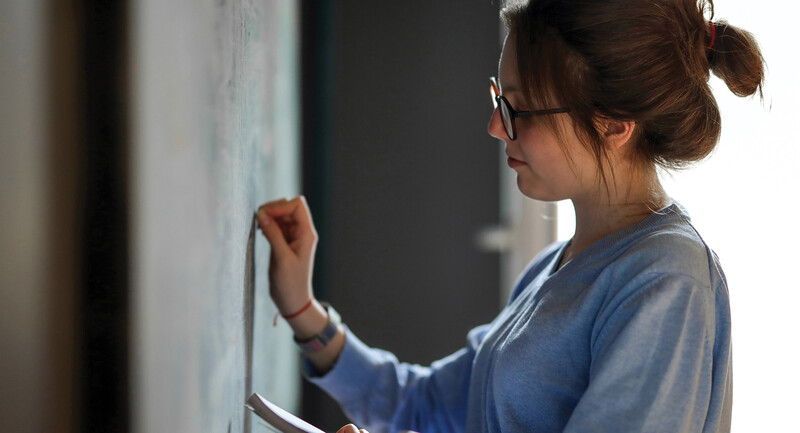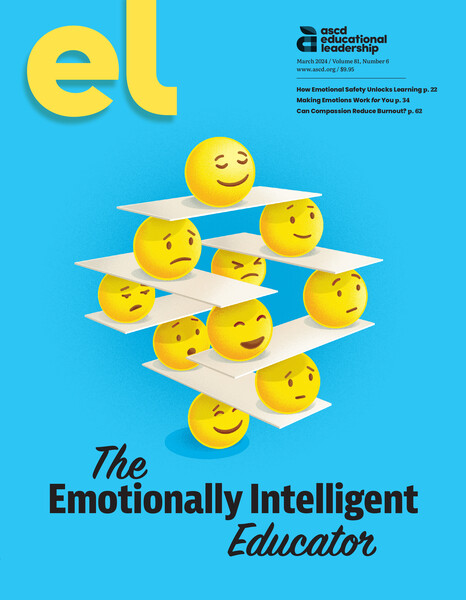Staying Grounded
When faced with challenging moments in school settings, I’ve developed a discreet strategy to manage my emotions without causing disruption. In particularly intense situations, pressing my palms down on a solid surface and slowly pressing my fingers, one at a time, into it, can be immensely calming. The sensory input provides a physical anchor, slowing down my thoughts and allowing me to regain composure. It’s a technique that can be done quickly and subtly while I continue engaging with the people around me. It works well by itself and is even more effective when I can sync my breathing to it.
—Amanda Koonlaba, learning specialist, Creativity First/Party in the Art Room, Saltillo, Mississippi
—Amanda Koonlaba, learning specialist, Creativity First/Party in the Art Room, Saltillo, Mississippi
Assuming Positive Intent
There are a few things I do as a leader. First, I take a breath. As simple as that seems, it means a lot to mentally pause and physically let my body relax. Then, I remind myself of positive intent. Most people I am working with have positive intent. My goal is to help shift their thinking if it does not support student learning—and if I let my emotions run with the moment, I’ve lost my opportunity to provide that support.
—Alissa Farias, data coach,
Tacoma Public Schools,
Tacoma, Washington
Proactively Nurturing Self-Awareness
I believe that the single greatest skill anyone can continue to grow is their self-awareness. In order to do this, it requires us to sit with our emotions and first demonstrate vulnerability with ourselves. Meditation and allowing myself to feel, see, acknowledge, and sit with emotions have allowed me to gain more control. I also use the “How We Feel” app that helps me to track my emotions and gives me data about how I feel across a multitude of variables.
—Joe Mullikin, superintendent,
Meridian CUSD 223,
Stillman Valley, Illinois
Not Taking It Personally
Parenting my own teenagers has gifted me with both a thick skin against disparagement and an empathetic heart for the struggles students face today. What is said in the heat of the moment is rarely the truth behind a student’s emotional outburst. While my students receive consequences for bad decisions, they also know that each day in my classroom is a chance to start again without judgment. To truly support and care for our students, we must extend to them the opportunity to move past mistakes. As educators, we must be willing to move beyond our own hurt feelings or bruised egos to do just that. Remember, don’t take it personally!
—Stephanie Ijames, science teacher, Concord High School,
Concord, North Carolina







